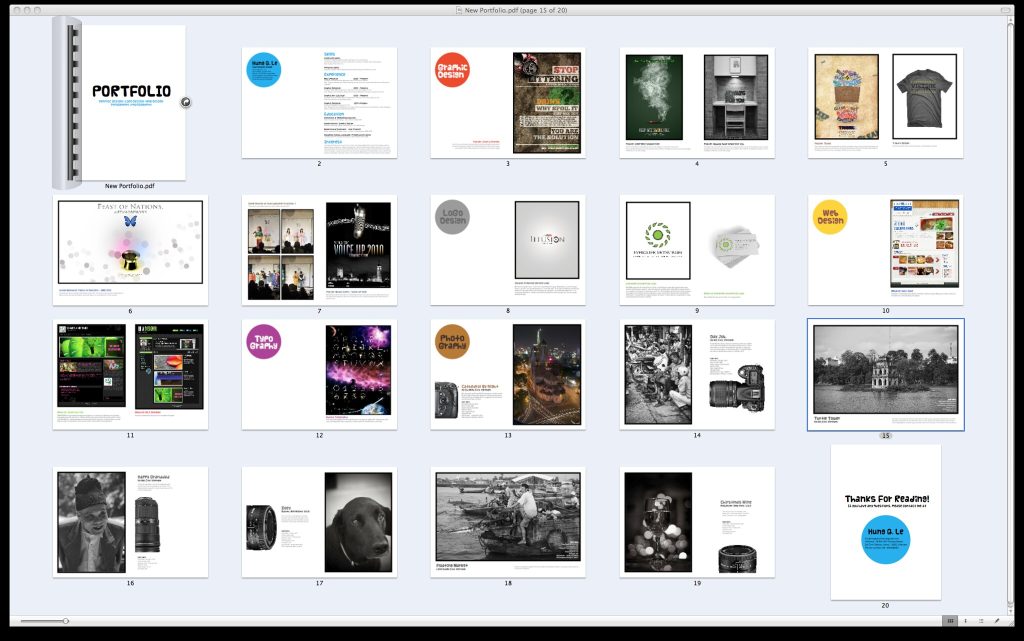Applying for a Nursing Position
Open Resources for Nursing (Open RN)
Many students begin applying for their first nursing position before they graduate or take the NCLEX-RN. Read tips for employment in the following box.
| Tips for Employment |
|---|
|
During your job-search process, it is helpful to begin by reviewing Medicare’s quality ratings of health care agencies and providers. The “overall star rating” is based on how well the agency performs on various quality indicators and patient satisfaction surveys.
Review Medicare ratings of hospitals, nursing homes, home health agencies, and providers at www.medicare.gov/care-compare.
When applying for a job position, a resume and/or portfolio is typically included as part of the application process.
Resume
A resume is a document that highlights one’s background, education, skills, and accomplishments to potential employers. There are many types of resume formats, and some individuals elect to use online services to create a professional resume.
A resume typically includes the following components:
- Personal contact information
- Professional objective statement/Goals
- Education
- Work experience
- Awards and achievements
- Community service
- Languages, hobbies, volunteer experiences (optional)
When creating a resume, it is helpful to highlight skills and experience that separate you from the other candidates applying for the position. It is also helpful to tailor your resume to the skills and experience expressed in the job description.
- Read more details about what to put in a resume and nursing resumes and cover letters.
- View a sample resume.
- View a sample Online Resume Service.
Portfolio
A portfolio is a compilation of materials showcasing examples of previous work demonstrating one’s skills, qualifications, education, training, and experience. They can be submitted in electronic or paper form. See Figure 11.3[1] for an image of a sample electronic portfolio.

Some schools of nursing require portfolios to be completed throughout the program. These portfolios are a representation of work demonstrating the student’s accomplishments.
Portfolios typically include the following:
- Personal contact information
- Resume
- Professional goals
- Skilled work with examples (e.g., a nursing care plan, process recording, teaching plan, etc.)
- Accomplishments (e.g., dean’s list)
- Degrees
- Certifications (e.g., CPR)
- Professional memberships (e.g., Student Nurse Association)
- Community service activities
- References (if requested)
- Read more about what to include in a portfolio.
- Visit an online portfolio service.
Interviewing
After applying for a position and submitting your resume and/or portfolio, you may be contacted to set up an interview. When you’re interviewing for an RN position, you will be asked about your skills, experience, and your education. Some questions may be basic, such as, “Why did you become a nurse?” Other questions may be more difficult to answer, such as “Explain your strengths and weaknesses as an RN.” See Figure 11.4[2] for a simulated interview.

Interviewing for a new position can cause anxiety because you are required to answer questions and provide examples. A strategy to make the interview process easier and reduce anxiety is to prepare answers for commonly asked questions prior to the interview. Completing this task will help you prepare and increase your confidence. See common interview questions in the following box. It is helpful to tailor your answers to the skills and experience provided in the position description of the job you are seeking.
| Common Questions During an Interview |
|---|
|
Prior to your interview, research the organization’s website. Be aware of their mission and vision statements and any “current events” in the news. Interviewers are impressed when an applicant has taken the time to learn about the organization and demonstrates interest.
Interviews may take place face-to-face, virtually on a computer, or over the phone. If you are interviewing face-to-face or virtually, dress for success in professional attire. If interviewing virtually, be sure to decrease distractions at home by turning off your phone and conducting the interview in a quiet space. Establish good eye contact with the interviewer and speak in a confident manner. Remember, this is the time to “sell your nursing self,” so highlight your achievements and what you are proud of accomplishing. See additional tips for interviews in the following box.
| Tips for Interviews |
|---|
|
The interview process is also an opportunity for you to determine if this position and agency is a good fit for you. Remember that it is important to select an agency that has good ratings for providing safe patient care and patient satisfaction. It is not worth taking a position that may place your nursing license at risk. Ask questions of the interviewer to clarify your understanding of the job position and expectations, agency policies, and workplace culture. Suggested interview questions are listed in the following box.
| Questions for Interviewer |
|---|
|
Media Attributions
- 4805383850_7385e60b6c_k
- 24835247668_0828e986ad_k (1)
- “4805383850_7385e60b6c_k.jpg” by Hung Le is licensed under CC BY 2.0 ↵
- “24835247668_0828e986ad_k.jpg” by Amtec Photos is licensed under CC BY-SA 2.0 ↵
Learning Activities
(Answers to "Learning Activities" can be found in the "Answer Key" at the end of the book. Answers to interactive activities are provided as immediate feedback.)
- In 2006 Nurse Julie Thao was charged with felony criminal negligence in the death of a 16-year-old laboring mother when she mistakenly hung a bag of epidural medication instead of intravenous penicillin. Although the baby was successfully delivered via cesarean section, the client died following aggressive resuscitation attempts as a result of circulatory collapse. Nurse Thao was fired from her job of 16 years. Her felony charge was amended to two misdemeanor counts, and her state’s Board of Nursing suspended her license, imposed practice limitations upon return, mandated completion of an education program, and imposed a $2,500 fine. Beyond these sanctions, she stated at her sentencing hearing, “The anguish and remorse are a life sentence that will serve for all time.”
View the Chasing Zero Documentary on YouTube[1]
Discuss factors that contributed to Nurse Julie Thao’s medication error. What reflections on your own nursing practice can be made after viewing this video clip? What actions might have been taken to avoid this error? Do you believe other members of the health care team were culpable in their actions?

Test your knowledge using this NCLEX Next Generation-style Case Study. You may reset and resubmit your answers to this question an unlimited number of times.[2]
Administrative law: Law made by government agencies that have been granted the authority to pass rules and regulations. For example, each state’s Board of Nursing is an example of administrative law.
Advanced directives: Written instruction, such as a living will or durable power of attorney for health care, recognized under state law, relating to the provision of health care when the individual is incapacitated.
Assault: Intentionally putting another person in reasonable apprehension of an imminent harmful or offensive contact.[3]
Battery: Intentional causation of harmful or offensive contact with another's person without that person's consent.[4]
Capacity: A functional determination that an individual is or is not capable of making a medical decision within a given situation.
Civil law: Law focusing on the rights, responsibilities, and legal relationships between private citizens.
Commission: Doing something a reasonable nurse would not have done.[5]
Competence: In a legal sense, the ability of an individual to participate in legal proceedings. A judge decides if an individual is “competent” or “incompetent.”
Confidentiality: The right of an individual to have personal, identifiable medical information kept private.
Constitutional law: The rights, privileges, and responsibilities established by the U.S. Constitution. For example, the right to privacy is a right established by the constitution.
Contracts: Binding written, verbal, or implied agreements.
Crime: A type of behavior defined by Congress or state legislature as deserving of punishment.
Criminal law: A system of laws concerned with punishment of individuals who commit crimes.
Culture of safety: Culture that embraces error reporting by employees with the goal of identifying root causes of problems so they may be addressed to improve patient safety.
Defamation of character: An act of making negative, malicious, and false remarks about another person to damage their reputation. Slander is spoken defamation and libel is written defamation.
Defendants: The parties named in a lawsuit.
Durable power of attorney for healthcare (DPOAHC): Person chosen to speak on one’s behalf if one becomes incapacitated.
Duty of reasonable care: Legal obligations nurses have to their patients to adhere to current standards of practice.
Ethics: A system of moral principles that a society uses to identify right from wrong.
False imprisonment: An act of restraining another person causing that person to be confined in a bounded area. Restraints can be physical, verbal, or chemical.
Felonies: Serious crimes that cause the perpetrator to be imprisoned for greater than one year.
Fraud: An act of deceiving an individual for personal gain.
Good Samaritan Law: State law providing protections against negligence claims to individuals who render aid to people experiencing medical emergencies outside of clinical environments.
Informed consent: The fundamental right of a client to accept or reject health care.
Infractions: Minor offenses, such as speeding tickets, that result in fines but not jail time.
Institutional liability: When the healthcare institution (e.g., hospital, clinic) is held responsible for the actions of its employees or for failing to implement adequate policies and procedures to prevent harm.
Intentional tort: An act of commission with the intent of harming or causing damage to another person. Examples of intentional torts include assault, battery, false imprisonment, slander, libel, and breach of privacy or client confidentiality.
Laws: Rules and regulations created by society and enforced by courts, statutes, and/or professional licensure boards.
Libel: Written defamation.
Living will: A type of advance directive in which an individual identifies what treatments they would like to receive or refuse if they become incapacitated and unable to make decisions.
Malpractice: A specific term used for negligence committed by a professional with a license.
Misdemeanors: Less serious crimes resulting in fines and/or imprisonment for less than one year.
Negligence: The failure to exercise the ordinary care a reasonable person would use in similar circumstances. Wisconsin civil jury instruction states, “A person is not using ordinary care and is negligent, if the person, without intending to do harm, does something (or fails to do something) that a reasonable person would recognize as creating an unreasonable risk of injury or damage to a person or property.”[6]
Omission: Not doing something a reasonable nurse would have done.[7]
Plaintiff: The person bringing the lawsuit.
Private law: Laws that govern the relationships between private entities.
Protected Health Information (PHI): Individually identifiable health information and includes demographic data related to the individual’s past, present, or future physical or mental health or condition; the provision of health care to the individual; and the past, present, or future payment for the provision of health care to the individual.
Public law: Law regulating relations of individuals with the government or institutions.
Slander: Spoken defamation.
Statutory law: Written laws enacted by the federal or state legislature. For example, the Nurse Practice Act in each state is an example of statutory law that is enacted by the state government.
Student liability: When the student nurse is held responsible for their own actions that cause harm to patients or violate protocols.
Supervisory liability: When a clinical supervisor or preceptor is held responsible for the actions of the student nurse or for failing to properly supervise them.
Tort: An act of commission or omission that causes injury or harm to another person for which the courts impose liability. In the context of torts, "injury" describes the invasion of any legal right, whereas "harm" describes a loss or detriment the individual suffers. Torts are classified as intentional or unintentional.
Unintentional tort: Acts of omission (not doing something a person has a responsibility to do) or inadvertently doing something causing unintended accidents leading to injury, property damage, or financial loss. Examples of unintentional torts impacting nurses include negligence and malpractice.

